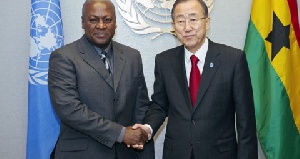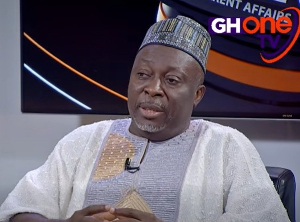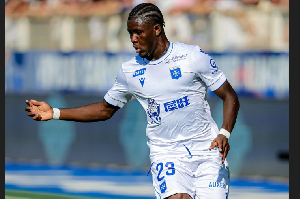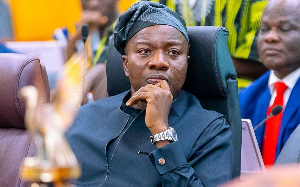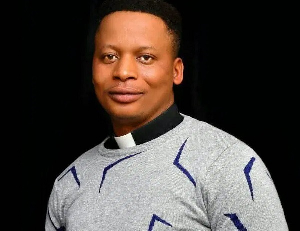A number of happenings over the last few weeks have got me thinking about the Sustainable Development Goals (SDGs) that more than 190 world leaders adopted at the United Nations general assembly meeting last year to replace the expired Millennium Development Goals (MDGs). First, the award the Ghana Journalists Association gave me as the best reporter in SDGs reporting for the year 2015.
Then, a chat I had with Abigail Larbi of the Media Foundation for West Africa about her organisation’s plan to fund journalists to report on SDG related subjects. And thirdly, a seminar on the SDGs I attended at the Institute for African Development of the Cornell University in Ithaca, New York State where I am participating in a fellowship programme.
Just a brief background. A UN General Assembly meeting of world leaders in the year 2000 adopted 8 ambitious international development goals that basically had the objective of eradicating extreme poverty and accelerating development within a 15 year time frame. The goals, christened Millennium Development Goals (MDGs) had specific targets on various areas including health, education, and environmental sustainability. The life span of the MDGs ended without some of the goals being achieved, and so on 25th September 2015, a new set of 17 goals with another 15 year life span christened Sustainable Development Goals was announced.
Now, the seminar I speak of was addressed by a man of extra-ordinary repute: accomplished Zambian academic, lecturer at the Cornell Law School and Director of the Institute for African Development at the Cornell University Prof. Muna Ndulo. I “googled” his name and chanced on his curriculum vitae. Its 27 pages long, you should see it. Prof. Ndulo spoke on the subject: The UN’s Sustainable Development Goals: Why they matter.
Just the way he carved the topic indicated he was of the conviction that the setting of the Sustainable and Millennium Development Goals was a good thing. He said, among others, the spelling out of the goals helped put peer pressure on leaders, particularly in developing countries, to work towards eradicating poverty and should thus be commended.
But he had some concerns. He noted it was not good enough for world leaders and civil society groups to just announce goals and assume that this was all we needed to do to deal with poverty. “It’s not sufficient to set goals. If the world has set goals and thinks that they would work, then that is extremely misleading,” he said.
Prof. Ndulo noted the poverty we are trying to deal with today is built on very matured structures that have been entrenched over generations, but unfortunately we are missing the point by dealing only with the symptoms instead of dismantling the structures. “We say there is no water then we put a well there but do not deal with the reason for which there is no water,” he explained. Well, I cannot help but associate myself with this position Prof.
Ndulo holds on the subject of SDGs. The goals don’t work like African gods. Nor do they work like prayer. We must roll up our sleeves and dirty our hands if we want them to come into fruition.
Then there was this participant at the seminar who tore down the idea of SDGs/MDGs with an even severer “killer punch” that I would never forget. He quizzed: “If you write a proposal requesting for resources to end poverty in 15 years, and when the duration ends you come back with a fresh proposal, and the objective again is to end poverty in 15 years, do you deserve the money?” Most participants at the seminar nodded in agreement that such a request should be declined.
But Prof. Ndulo pointed out rightly that the difference here is that, the UN’s SDGs and MDGs are not proposals for funds but a general outline of ideas that seek to put planet earth’s development in focus and give us all central themes on poverty eradication to work around. That, I believe is exactly where the problem is. Why do you set goals if you are not providing resources for the implementation of the necessary strategic plan for the achievement of the set goals?
One thing is clear. Good intentions have never been good enough. If they were, I am sure this world would have been paradise by now. A paradise where every child can get access to quality education, all mothers will have clean water, where all fathers can put quality houses above the heads of their families, where quality healthcare is within an arm’s reach and where good, nutritious food is within the reach of every one.
So, when world leaders met at the UN General Assembly and the live cameras were rolling, and they exchanged warm hand-shakes and hugs, and made sensational speeches and heartwarming pledges, did anyone bother to ask them how much that showed they care about their people back at home? Do their people themselves care about the signatures the leaders appended to adopt the SDG document? Do you care?
If you want to develop your country as a head of state, why shouldn’t the approach rather be from bottom up where you go to your people and sit down with them to set nation specific developmental goals and work towards their achievement? Why should the goals be UN owned and not ordinary people owned?
There is no world leader who lacks ideas on how to deal with poverty in his or her home country. That, I am sure of. Any such leader has absolutely no business being in charge. So, if you have a “to-do-list” lying under your pillow at home, and you don’t act on it, but travel abroad to go sign an agreement promising to work on the same assignment, should I take you serious?
Sometimes, I get the impression the world leaders do not exactly take themselves serious when they gather for such meetings. It’s probably just for the fun of it.
I would not be surprised if in 2030, world leaders gather again at the UN headquarters to announce another set of goals aimed at “ostracizing” poverty, instead of celebrating the success story of the SDGs. I will be more than happy to be proven wrong by the way.
But should we give up on the SDGs because the leaders championing it themselves appear not to be convinced it will work? I don’t think so. As we say in Asante land, “they have placed their hands in the food of the old woman.” We need to force them to eat it.
Every citizen of this world should begin demanding accountability from his or her head of state on what is being done to meet the SDGs. The implementation is supposed to have begun by now, and we must keep the pressure on. The only way to keep it on track is to start asking the hard questions now. Not after the 14th year.
Let us continue to generate national conversations around it. If possible, let’s pour out on the streets in demonstrations to demand they are met. Let’s demand from our political leaders who are currently campaigning to lead our country after the December elections, how these goals fit in their manifesto plans. Afterall, we don’t lose much by making these demands.
Opinions of Saturday, 10 September 2016
Columnist: Joseph Opoku Gakpo

